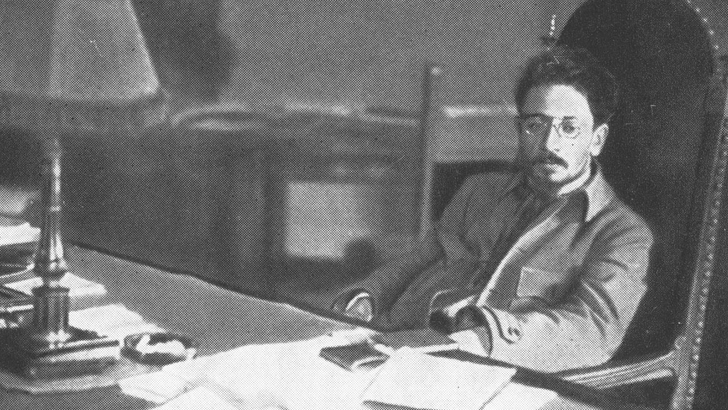Yakov Sverdlov, the imperious chairman

Few people have heard of Yakov Sverdlov, the brilliant Bolshevik organiser. But he is important. Without Sverdlov, the Russian Revolution might not have succeeded. And without people like him, no revolution will succeed.
Sverdlov was a practical revolutionary – taking seriously Marx’s maxim that “philosophers have only interpreted the world – the point is to change it”.
He became a Marxist and an underground organiser at the age of 16, in the bustling, newly industrialising town of Nizhny Novgorod. Two years later, when the Bolsheviks split with the Mensheviks, he joined the new Bolshevik faction.
This was not a good career move. Yakov was repeatedly arrested and hounded by the secret police for most of his life. He suffered arrest, imprisonment and exile – then he escaped, organised, was arrested and imprisoned and escaped again. Like many revolutionaries he gave up any notion of a settled, comfortable life. He organised Bolshevik underground cells and committees wherever he went, making links with activists and recruiting radicals to the party.
When revolution broke out in 1905, Sverdlov was in the middle of the mass working class demonstrations in Ekaterinburg. He played a crucial role in organising the first workers’ council in the town, and was elected its head, at the age of 20. Along the way, he helped organise a workers’ militia that travelled and drilled other workers in self-defence.
The 1905 revolution was crushed, and years of bitter reaction followed. Sverdlov continued organising. He travelled, appointed people, chaired committees, organised demonstrations and for a period took charge of the Bolsheviks’ daily newspaper Pravda. He was neither theoretician nor writer. He did not shine in expounding the complexities of political questions in articles or speeches; he was preoccupied with internal organisational tasks. Yet this often mundane, unglamorous work required the most nuanced and intricate political leadership. Trotsky remembering Sverdlov in this way:
“Sverdlov had to preside a great deal. He was Chairman of many bodies and at many meetings. He was an imperious Chairman. Not in the sense that he shut off discussion, or curbed the speakers, and so on. Not at all. On the contrary, he never quibbled or insisted on formalities. His imperiousness as Chairman consisted in this, that he always knew exactly what practical decision was before the body; he understood who would speak, what would be said, and why … he was adept at giving the floor in time to speakers who were needed; he knew how to put the proposition to a vote in time; he knew what could be carried and he was able to carry what he wanted.
“These traits of his as Chairman were bound up indissolubly with all his qualities as a practical leader, with his ability to appraise people in the flesh, realistically, with his inexhaustible inventiveness in the field of organisational and personnel combinations.”
During the revolution of 1917 Sverdlov was everywhere, and was the person everyone turned to in a crisis. He ensured that experienced Bolsheviks were sent to organise factory committees, oversaw the political work among soldiers, made speeches on mass demonstrations. Soon he was known among political opponents as the “black devil of the Bolsheviks”, named after the black leather jacket he always wore.
When the Bolsheviks were arrested en masse during a wave of repression in July, Sverdlov became the de facto leader, attending to crisis after crisis with icy self-control.
When the soviets took power, Sverdlov became the head of the new Russian workers’ state as the chair of the All-Russian Soviet Executive Committee. He faced immense responsibilities in organising both government and party affairs, solving economic problems, finding reliable and competent people for innumerable tasks. Along with all this, he organised and prepared for the first congress of the Communist International.
He embodied brilliant political leadership – solving political questions with practical acumen. In the climate of the desperate civil war, chronically overworked, he caught the flu in 1919 and died aged 34.